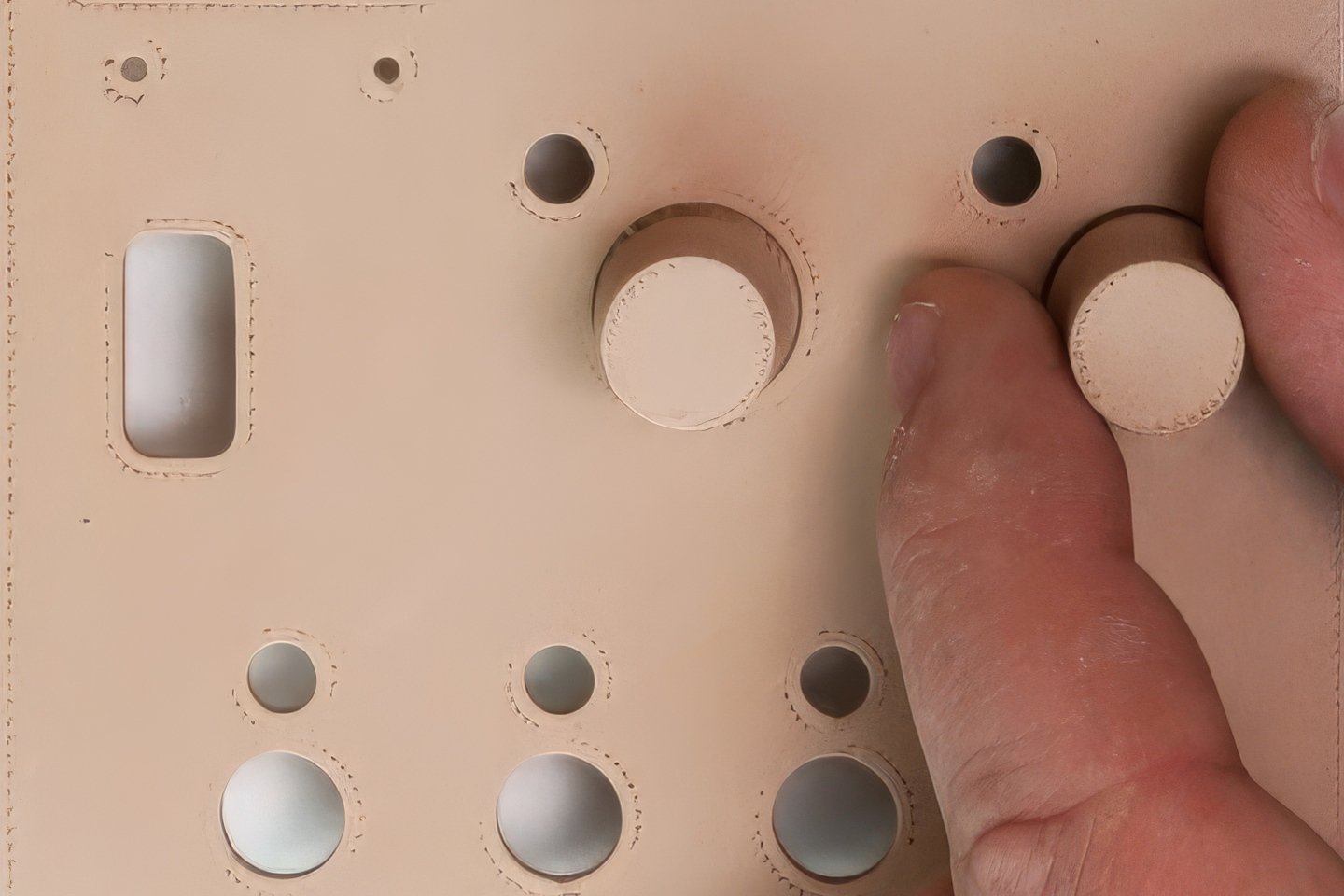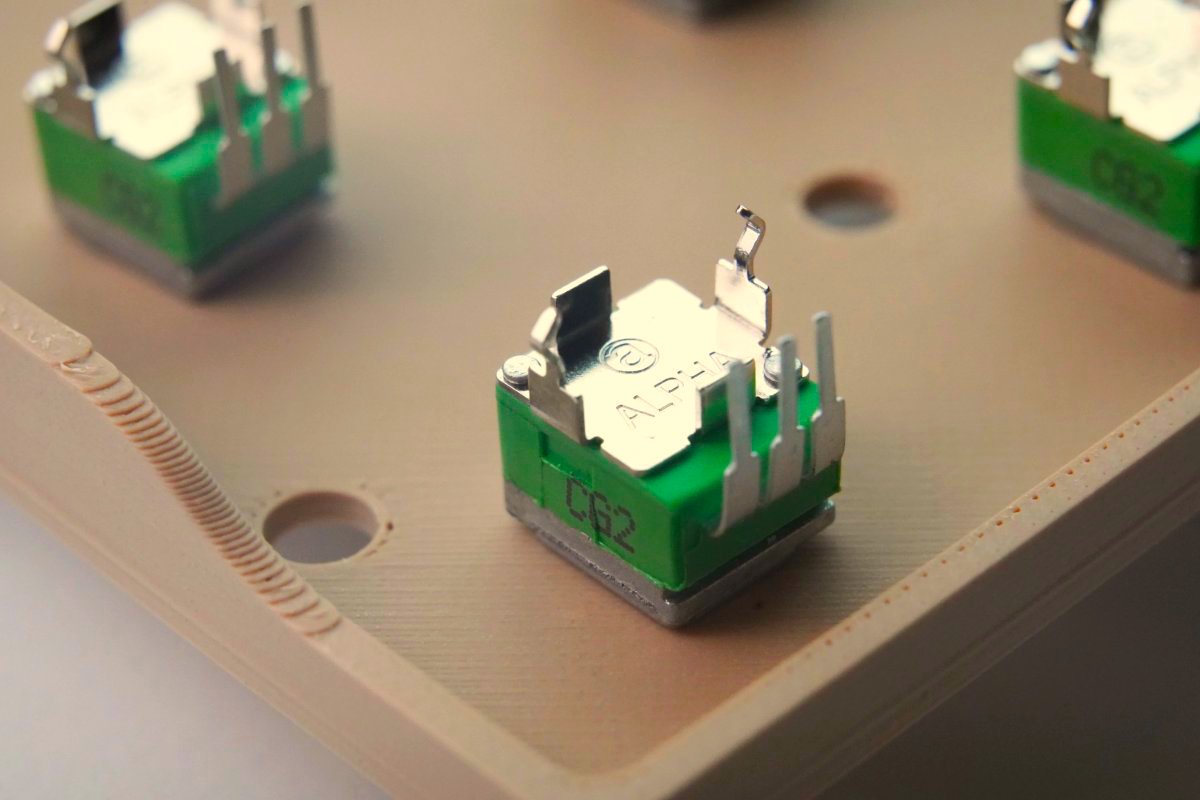Rapid Prototyping and 3D Printing
In-House 3D Printing for Rapid Design Testing and Iteration
This is one of several prototypes of a MIDI controller enclosure. 3D printed to assess the spacing between the potentiometers, this test prototype helps to evaluate the overall ergonomics and size of the product. This stage allows us to fine-tune the dimensions for optimal usability and space efficiency before moving forward with the final design.
If the enclosure is too small, the knobs become cramped and difficult to turn comfortably, which could hinder user experience.
If the enclosure is too large, the device becomes bulky, making it less practical for desktop use alongside a laptop.
After several iterations, we settled on a spacing of 32.5mm between the 8 control elements, striking the perfect balance between usability and size. While this is more generous than most controllers on the market, the added comfort when turning the knobs is well worth it. We’re confident that this larger spacing won't compromise the overall compactness of the device, which is ideal for the travelling producer or DJ who needs portability without sacrificing comfort.
The full unit prototype faceplate, 3D printed in PolyTerra Peanut PLA
A side view of potentiometer design layout during the prototype stage.
A close-up view of the potentiometer prototype, assessing the space and practicality of its design for functional use.
Rapid Prototyping with Bambu X1-Carbon for Efficient Design Testing
For prototyping, we used PolyTerra Peanut PLA, a material that not only offers a great clay-like aesthetic for prototypes but also aligns with our commitment to using eco-friendly, recyclable materials. With our Bambu X1-Carbon printers, we can rapidly produce prototypes in various plastic materials, including PLA, PLA-CF, ABS, PC, and TPU. This, combined with our SLA printing capabilities on-site, allows us to choose whether to print fast or with a high level of detail and precision for more intricate parts. The ability to quickly and affordably test designs in a range of materials ensures that we can fine-tune both form and function before finalising the product, keeping costs down while speeding up the development process.
A close-up of the back view of the potentiometer layout.
A front view of the potentiometer prototype.
Streamlining the Design Process with Efficient Prototyping
Incorporating in-house 3D printing technologies, such as our Bambu X1-Carbon and UniFormation GK3 Ultra SLA printers, allows us to rapidly test and refine our designs, ensuring that each iteration meets both functional and ergonomic requirements. With the ability to print in a variety of materials, including PLA, PETG, TPU, Nylon, ABS, HIPS, and various resins for SLA printing, we can quickly assess how different components interact and make adjustments without incurring significant costs or delays. This streamlined prototyping process not only accelerates development but also empowers us to create products that are both innovative and user-friendly, all while maintaining a strong focus on sustainability and efficiency.




